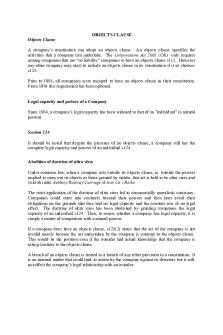Idealism, Intentionality, and Nonexistent Objects DOC

| Title | Idealism, Intentionality, and Nonexistent Objects |
|---|---|
| Author | Gordon Knight |
| Pages | 10 |
| File Size | 61.5 KB |
| File Type | DOC |
| Total Downloads | 166 |
| Total Views | 617 |
Summary
Journal of Philosophical Research Volume 26 Issue 0 / 2001 Gordon Knight Idealism, Intentionality, and Nonexistent Objects University of Iowa ABSTRACT: Idealist philosophers have traditionally tried to defend their views by appealing to the claim that nonmental reality is inconceivable. A standard r...
Description
Journal of Philosophical Research Volume 26 Issue 0 / 2001 Gordon Knight Idealism, Intentionality, and Nonexistent Objects University of Iowa ABSTRACT: Idealist philosophers have traditionally tried to defend their views by appealing to the claim that nonmental reality is inconceivable. A standard response to this inconceivability claim is to try to show that it is only plausible if one blurs the fundamental distinction between consciousness and its object. I try to rehabilitate the idealistic argument by presenting an alternative formulation of the idealist's basic inconceivability claim. Rather than suggesting that all objects are inconceivable apart from consciousness, I suggest that it is impossible to conceive of any such object as genuinely existent. This thesis is lent credence by the fact that only in reflective self- consciousness is existence a phenomenological datum. Not only is it the case that we are not ever aware of an object as existing, we do not have a clear understanding of what it would be like to have such an awareness. If this is true, then we have reason to believe that while consciousness exists, the objects of consciousness cannot exist. Metaphysical idealism is not a particularly popular doctrine these days. However, this was not always the case. During the late nineteenth and early twentieth centuries, idealist metaphysicians dominated the philosophical world in the United States and Great Britain. The demise of idealism might be explained by appeal to several factors, including the historical climate of the early and mid-twentieth century and the strong influence exerted by young realist philosophers such as Russell and Moore. Here I want to address what was the central philosophical objection to idealist metaphysics. This objection was presented in its most influential form in Moore's early essay "The Refutation of Idealism," but the scope of this objection goes much farther ― 44 ― than this particular essay. The force of Moore's argument is based on a fundamental phenomenological fact that, since Brentano, has been acknowledged by a wide variety of philosophers, from both the Continental and Anglo-American analytic schools. This phenomenological feature is the directed, intentional character of consciousness. Many philosophers have believed that once one recognizes the distinction between the act of consciousness and the object of consciousness, the primary motivation behind idealist metaphysics falls by the wayside. Before we can consider the legitimacy of this objection to idealism, we must first see what particular argument the realist philosophers took themselves to be countering. The argument that Moore and others were trying to refute held as an essential premise the claim that nonmental reality is inconceivable. Not only are there no nonmental things, the...
Similar Free PDFs

Idealism AND Education
- 6 Pages

Adolescent idealism
- 1 Pages

Class and objects - IT Learning
- 10 Pages

Solved MCQ (Classes and Objects)
- 12 Pages

Hegel’s Absolute Idealism
- 3 Pages

Certainty of objects - helpful notes
- 15 Pages

Objects Classes Tut 3
- 3 Pages

Objects Links - Table Format
- 4 Pages

Extra Notes on Objects Clause
- 1 Pages

Seminar 4 certainty of objects
- 13 Pages
Popular Institutions
- Tinajero National High School - Annex
- Politeknik Caltex Riau
- Yokohama City University
- SGT University
- University of Al-Qadisiyah
- Divine Word College of Vigan
- Techniek College Rotterdam
- Universidade de Santiago
- Universiti Teknologi MARA Cawangan Johor Kampus Pasir Gudang
- Poltekkes Kemenkes Yogyakarta
- Baguio City National High School
- Colegio san marcos
- preparatoria uno
- Centro de Bachillerato Tecnológico Industrial y de Servicios No. 107
- Dalian Maritime University
- Quang Trung Secondary School
- Colegio Tecnológico en Informática
- Corporación Regional de Educación Superior
- Grupo CEDVA
- Dar Al Uloom University
- Centro de Estudios Preuniversitarios de la Universidad Nacional de Ingeniería
- 上智大学
- Aakash International School, Nuna Majara
- San Felipe Neri Catholic School
- Kang Chiao International School - New Taipei City
- Misamis Occidental National High School
- Institución Educativa Escuela Normal Juan Ladrilleros
- Kolehiyo ng Pantukan
- Batanes State College
- Instituto Continental
- Sekolah Menengah Kejuruan Kesehatan Kaltara (Tarakan)
- Colegio de La Inmaculada Concepcion - Cebu





